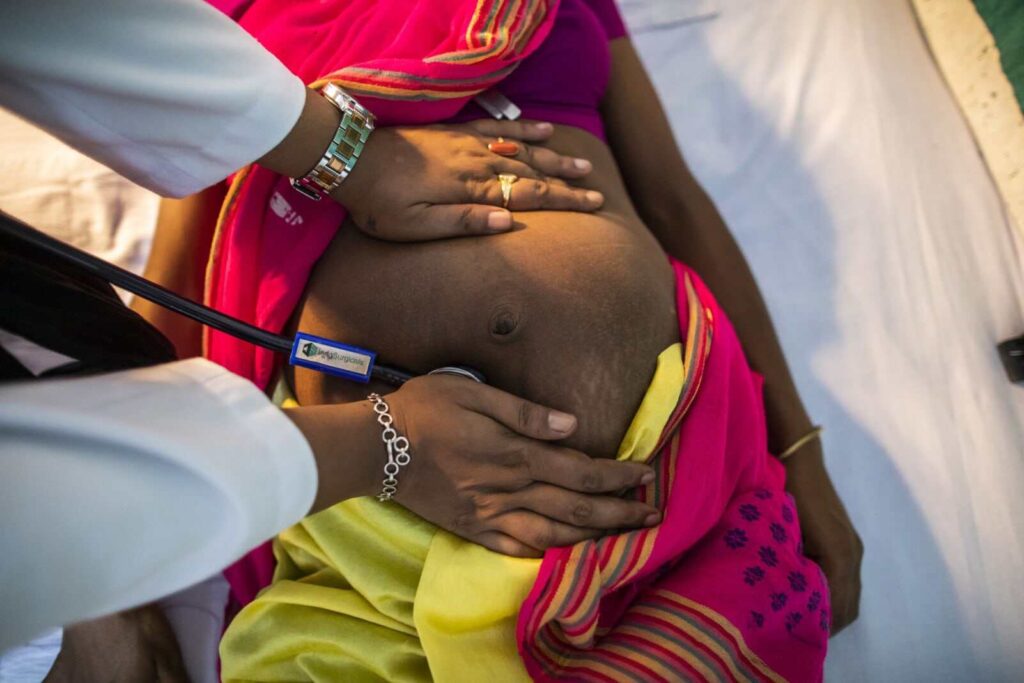A recent report from the Commonwealth Fund reveals that maternal mortality in the United States keeps increasing compared to other high-income nations. In 2022, the U.S. experienced almost 22 maternal deaths per 100,000 live births.
This figure is more than double and, in some cases, triple the rates observed in other affluent counties. The disparity is even more pronounced among Black women in the U.S., who face nearly 50 maternal deaths per 100,000 live births. Can we say this alarming statistic is due to racial inequalities in maternal health outcomes within the country?
Maternal Health Crisis in the United States
While half of the countries noted in the recent report recorded fewer than five maternal deaths per 100,000 live births, Norway had zero deaths. That’s incredible! According to Munira Gunja, the report’s lead author and senior researcher at the Commonwealth Fund, this maternal death issue will likely worsen.

Unlike many of its peers, the U.S. has limited access to midwifery care. According to Gunja, Midwives are an important part of maternal health. In fact, they often outnumber obstetricians and gynecologists. However, in the U.S., midwives are underutilized.
ALSO READ: Healthy Vegetarian Diets Linked to Longer Life and Lower Risk of Heart Disease Death
Gunja also noted other challenges faced by the U.S., especially the absence of a universal health system. Nearly 8 million women of reproductive age lack health insurance, further exacerbating the issue.
On the other hand, other high-income countries ensure universal access to maternal care, whether provided by midwives or obstetricians. In the United States, the inclusion of midwifery care into the healthcare system is insufficient. So, why is everyone surprised about the nation’s comparatively high maternal mortality rate?
The U.S. Remains an Outlier in Maternal Mortality
An analysis by the Commonwealth Fund shows that the alarming position of the maternal health system is an outlier in maternal mortality rates in other notable countries. Researchers examined data from 14 nations, including Australia, Canada, Chile, France, Germany, Japan, Korea, the Netherlands, New Zealand, Norway, Sweden, Switzerland, the UK, and the US.
The data from the US Centers for Disease Control and Prevention and the Organisation for Economic Co-operation and Development revealed that Chile and New Zealand had the highest maternal death rate. Of course, this is alongside the US, leading at 22 maternal deaths per 100,000 births in 2022.
ALSO READ: Illegal Migrants From Venezuela Reportedly Shoot 2 NYC Police Officers During Foot Chase in Queens
Chile and New Zealand reported around 14 deaths per 100,000 live births each. Contrarily, Norway had zero maternal deaths, while Switzerland had one death per 100,000 live births. Furthermore, Sweden reported about three deaths per 100,000 live births.
The Covid-19 pandemic era saw an increase in maternal death rates in countries like Australia, Japan, the Netherlands, and the US. At least, the deaths could be attributed to Covid-related complications and decreased access to care. That’s pretty understandable.
However, recent data shows a decline in maternal deaths in Chile, Norway, and the US. The US saw a reduction from 32.9 maternal deaths per 100,000 live births in 2021 to 22.3 in 2022.
What Is the Way Forward?
Dr. Laurie Zephyrin, senior vice president for advancing health equity at the Commonwealth Fund, acknowledged the improvement. However, she noted that the US still stands out negatively, with significant racial disparities in maternal health.

She called for urgent action to tend to these disparities. She suggested diversifying the healthcare workforce and implementing proven strategies from other countries, such as expanded health insurance coverage, stronger support systems, and paid maternity leave.
From the report, it’s evident that the US healthcare system, policy differences, and maternity care are the factors contributing to the high maternal mortality rate in the country. Additionally, the findings emphasize the need for systemic changes to improve maternal health outcomes in the United States.
You Might Also Like:
Bobby Shmurda Speaks About Why He Hasn’t Released Music in Years
Court Convicts Missing North Carolina Girl’s Stepfather for Failing to Report Child’s Disappearance
Katy Perry “Fixes” Chiefs’ Kicker Harrison Butker’s Controversial Commencement Speech
Trump Supporter Wearing MAGA Hat Accuses American Airlines Of Discrimination
